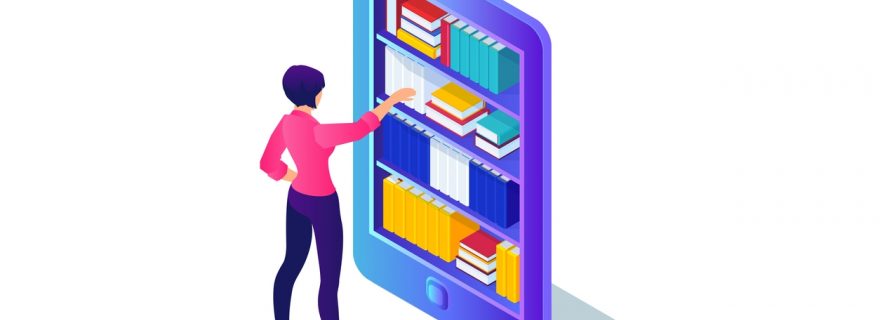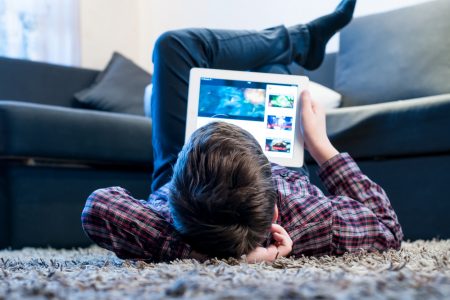Screen vs. paper: Battle of the (e-)books
Technology plays an increasingly important role in all aspects of our lives, and reading is no exception. But does it matter for comprehension whether we read from paper or from a screen? Although the question seems straightforward, the answer is not.
Image yourself curled up on the couch reading. Do you see yourself with a paper book or with an e-reader? And if we change the situation? What if you are sitting at your desk, reading an important article for work or school? Do you print the article or read it from your screen? When a deeper understanding of the text is required (e.g., when you read that important article), many people prefer reading from paper because they believe it leads to better text comprehension than reading from a screen. But what does the science say? Does how you read a text really matter for your comprehension?
A polarized debate
Ever since the dawn of digital reading, there has been a fierce debate within academia and beyond on which manner of reading is better for our comprehension: reading from paper or from a screen. Many studies have tried to answer this question, but the results seem inconclusive. Whereas some studies have shown that reading from paper is better for our comprehension, others have highlighted that some of the benefits of digital reading (e.g., hyperlinks, animations) aid our comprehension in ways paper texts cannot.
Asking the right questions?
Although the results of these different studies seem at first sight to contradict each other, upon closer inspection they may not be so surprising after all. Especially when we take into account that every study examines different situations. Some studies, for example, look at narrative texts, while others look at expository texts (texts providing factual information). Furthermore, some studies compare the comprehension of the exact same text read from paper and from a screen, while others compare paper texts with texts that have digital extras (e.g., hyperlinks, animations). Finally, many different types of screens are used across studies, ranging from computer screens to smartphones, tablets, and e-readers. So, perhaps we’ve been asking the wrong question. Instead of asking whether it is better to read from paper or from a screen, we should ask under which circumstances a particular medium is better and why. These questions were central to the meta-analysis carried out by Delgado et al. (2018). Their results show that reading from paper leads to better comprehension, but only under specific circumstances. Expository texts, for example, are better understood when read from paper, especially when the reader has limited time to read the text. In contrast, our comprehension of narrative texts, for which we usually have no time limit, is not impacted by the reading medium. Finally, if we do decide to read from a screen, it is better to read from a hand-held device (such as a smartphone, tablet, or e-reader) than a computer screen, as reading from a computer screen reduces our comprehension.
Time to throw away my printed books or e-reader?
Asking the general question of whether reading from paper or from a screen is better isn’t getting us anywhere. Instead we should assess the specific circumstances in which we are reading. For casual reading, the way we read seems to have no influence on our comprehension. So do whatever you like best - although bringing your e-reader on holiday rather than the contents of your bookcase may lighten your luggage.
When reading an expository text – such as a news article, manual, or textbook – the reading medium does make a difference. Critically assessing the way we offer expository texts is crucial, because these types of texts are often used in educational settings (e.g., textbooks, articles) where students not only have to understand the texts but also learn from them, often within a limited amount of time. The results of Delgado et al. suggest that it would be best to provide educational texts on paper, or on a hand-held device.
There you have it: don’t throw away your printed books or tablet just yet, as both are useful depending on the question you ask.





